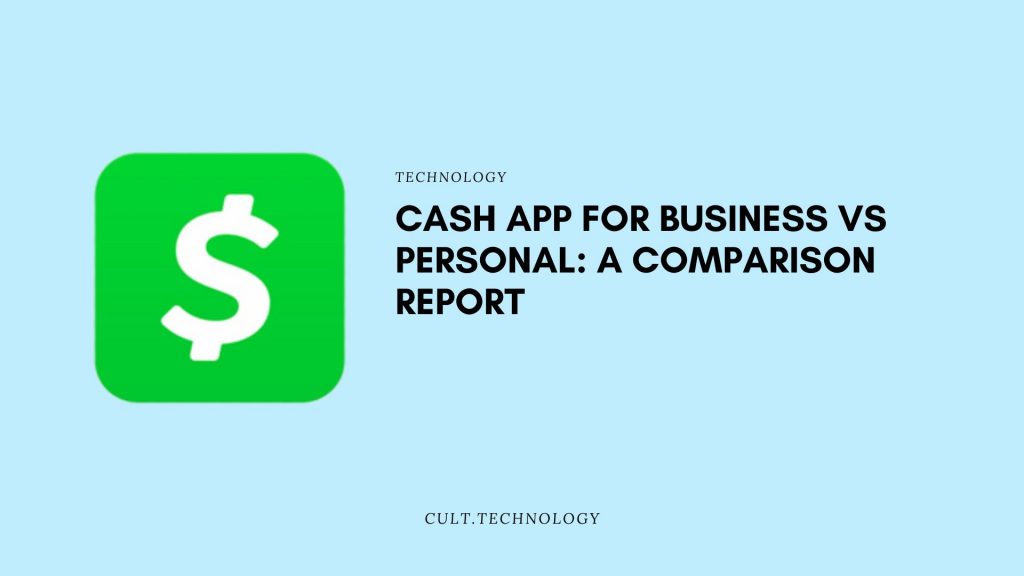Since its inception in 2013, Cash App has become one of the leading mobile payment services. With over 70 million annual transacting users, this platform is very popular, and for good reason: free money transfers, optional free debit cards for purchases, and investing in stocks for as little a cost as $1 are just a few of its beneficial features.
Cash App became notable as a convenient means of transferring money on short notice to friends and family – whether you’re splitting your tab at the bar or asking them to pick up some groceries for you when they visit the supermarket.
However, for business owners, Cash App also offers a Business Account. The features of this account are very distinct from their normal accounts for personal use. Cash App business accounts offer business owners a cost-effective, user-friendly, and secure way to carry out their company-related transactions.
Cash App’s business account features are very different from personal accounts, since the accounts, and the transactions made through them, are intended for different purposes. If you are confused as to whether a business or personal account is better for you and want to get a clearer idea about the differences between the two, then you’re in luck, because we’ve done your research for you!
Want to know more? Just relax, and keep reading!

Differences between business and personal accounts on Cash App:
- Intended Use: The most obvious difference between the two types of accounts lies in their use cases; as the name suggests, business accounts are intended for business owners who need to pay or receive large sums of money from other businesses or clients. Personal accounts are intended for personal use only. Transferring funds to friends and family to meet any shared expenses such as restaurant bills or medical costs are amongst the intended uses of the personal account.
- Transaction fees: For all transactions made through Cash App business accounts, Cash App charges a transaction fee of 2.75% of the total amount of money sent or received. Transactions on personal accounts, in contrast, require no transaction fees.You don’t need to pay an initial set-up fee or an annual subscription for either type of account.
- Linking to bank account: You can link your bank account to both the business and personal accounts. Standard transfers to and from your bank are free. But instant transfers will incur a fee of 1.5% of the amount of $0.25, whichever is more.
Cash App business accounts have no limits on the amount of money they can receive. But, if you receive over $20000 in any month, you will be sent a 1099-k form for your taxes. You can also send up to $7500 per week.
Personal accounts, on the other hand, have limits on both sending and receiving money; verified users can send a maximum of $2500 per week, while unverified users can send merely $250 per week. Both verified and unverified users can receive $1000 per month only.
- Creating Payment Links: Owners of business accounts on Cash App can conduct transactions through their accounts even with non-Cash App users. They can create unique payment links to share with customers who don’t have a Cash App account. The recipient can then use the link to make payments without needing to download the app or create an account of any sort of it. You can share these links over email, SMS, WhatsApp, or even as hyperlinks on your website.
Only owners of business accounts can avail of this feature; personal account users of the Cash App cannot create unique payment links.
Pros of Cash App business account:
Some of the benefits of having a Cash App business account are:
- Security of payments: There is secure, end-to-end encryption on all transactions made through Cash App’s business accounts. You can thus be assured that your vulnerable financial information is confidential and secure. This will help maintain your reputation with your vendors and customers also. Cash App adheres to the same security protocols as the leading credit card companies, so transacting through Cash App is no less secure than using a credit card.
- Ease of Use: Transactions through business accounts are very simple and straightforward for both parties to the transaction. The Cash tag functionality allows you to create payment links with very little hassle, and your customers can easily pay through these links. Cash App’s attractive and intuitive visual interface allows you to check your payment history, and monitor the balance of cash left in your account.
- Cheap pricing: Although Cash App charges a 2.75% transaction fee on all transactions on business accounts, this rate is very competitive when compared to other mobile payment services. Stripe, for example, charges a flat rate of $0.30 alongside 2.9% of every transaction. PayPal also has a complex payment structure based on the user’s country. For instance, in the USA it charges 4.4% of the transaction plus a fixed currency fee. Thus, Cash App comes out ahead of its competitors in the matter of transaction fees.
- Simple set-up: Creating an account, even a business account, on Cash App is very easy. As long as you’ve filed your taxes, it shouldn’t take more than a few minutes. Speaking of filing taxes, you can even do that via Cash App Taxes! For more details, check out https://taxeshelp.cash.app/s/article/How-to-use-Cash-App-Taxes.
Cons of Cash App business account:
Some of the limitations of the Cash App business account are:
- No business management services: Cash App business accounts don’t include any business management services for their users. Hence, account owners won’t be able to track or schedule payments.
- Bank account is necessary: To transfer any funds out of your business account, you’ll need to have a bank account linked to your Cash App account.
- Limited customer support functionality: Cash App, unfortunately, offers very limited customer support services. You can only contact customer support executives through the messaging service on the app; there is no option of support via live chat or phone call.
Pros of Cash App personal account:
Some of the benefits of the Cash App personal account are:
- Solid security features: Apart from the usual layers of encryption, Cash App employs certain additional features to enhance the security of its users. Many of the features of the app can only be accessed by either providing a PIN code or through two-factor authentication.
- User-friendly: The personal account is very easy to use; you can create the account without paying any cost, and transfer or receive money from your acquaintances without any hassle.
- Investing via Cash App: You can easily invest in stocks and cryptocurrency using your Cash App account. The features aren’t sufficient for seasoned investors or those looking to invest large amounts. But, for novices who want to just get started in the market, making investments via Cash App is a great option.
You can set automated prices to sell and buy at, receive data-driven insights and analytics to optimize your investments, and receive regular notifications on stocks or crypto you’re interested in. For just $1, you can purchase fractional shares i.e. smaller parts of larger stocks, without having to pay any commission.
Cons of Cash App personal account:
Some of the downsides of the Cash App personal account are:
- Limits on sending and receiving money: Personal accounts can receive only 1000 dollars each month. You can send $2500 if you’re a verified user or $250 if you are not a verified user.
- Poor customer support functionality: Customer support functionality for personal accounts is also rather unsatisfactory. You can’t contact customer support through phone or live chat; only via the app itself.
- Limits on Cash Card: Cash App’s Cash Card feature limits you to spending a maximum of $7000 in a day, $10000 in a week, and $25000 in a month. This Cash Card also has a cash back feature, which also has a restriction of $1000 per week.
Conclusion
The business and personal accounts on Cash App share more similarities than differences; they are both easy to set up and use, cost very little in comparison to competing services, and offer convenient banking features.
Beyond that, the type of account you should use depends entirely on your own needs. If you’re handling very large sums of cash regularly, the business account is probably better. If you just need to share incidental sums with friends and family, you should go for a personal account. We can assure you that whichever option you end up going for, you won’t be disappointed with this platform!
We hope you enjoyed this comparative look at the business and personal accounts of Cash App!



